Once a year, we welcome a visiting luminary from theatre or film. She or he leads a professional development workshop and discusses career opportunities with our dramatic writing students. The Playwrights Enrichment Series began in Fall 2008 and was made possible by an anonymous gift from a program alumnus. It continues to be supported by our loyal alums who relish this opportunity to “pay it forward.”
Request more information from an Admissions Counselor.

Jesse Cameron Alick, Literary Manager, The Public Theatre
Jesse Cameron Alick is a poet, playwright, producer, and Zen Master. In addition to being the Literary Manager at the Public, he also runs their Emerging Writers Group and manages such programs as New Work Now and Public Studio, while also providing dramaturgical support and serving as an artist liaison. Outside the Public, Jesse is also a freelance journalist and essayist. Jesse studied writing with playwright Adrienne Kennedy and has taught for the theater department at Lewis and Clark College.
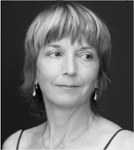
Jane Anderson, Playwright and Director
Jane Anderson is an American actress-turned-award-winning playwright, screenwriter and director. She has written and directed one feature film, The Prize Winner of Defiance, Ohio and wrote the script for the Nicolas Cage film It Could Happen to You. She won an Emmy Award for writing the screenplay for the miniseries Olive Kitteridge.
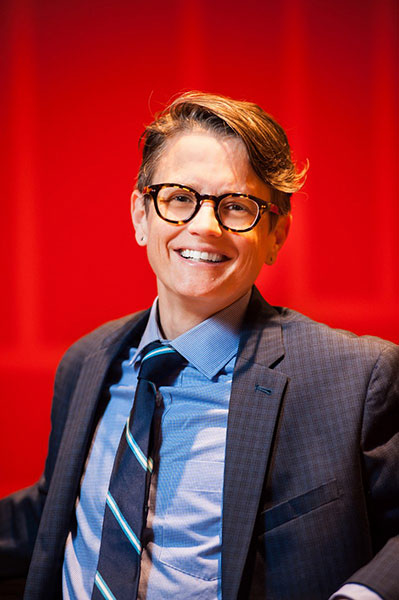
P. Carl, founder of HowlRound, and Artistic Director of the Theatre Commons, Emerson College
P. Carl is the Director and co-founder of HowlRound–a think tank and knowledge commons actively making community among theatremakers worldwide through online resource sharing and in-person gatherings. Carl is also the co-artistic director of ArtsEmerson at Emerson College where he develops, dramaturgs, and presents an eclectic array of theatre from diverse artists from around the globe.
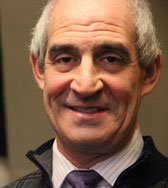
John Eisner, Lark Theatre
John Eisner is the director of the Lark Theatre in New York. He has directed plays by Calderon, Yeats, Wilder, Shakespeare, John Patrick Shanley, Elizabeth Logun, Ian Rowlands and Lloyd Suh, among others, and worked with hundreds of writers on new plays at The Lark, including Kristoffer Diaz, Katori Hall, David Henry Hwang, Rajiv Joseph, and Arthur Kopit. He has served as advisor for the National Endowment for the Arts, New York State Council on the Arts, and the Theatre Development Fund.

Gary Garrison, Artistic Director, Dramatists Guild
Gary Garrison was the Executive Director of Creative Affairs of the Dramatist Guild of America. Prior to his work at the Guild, Garrison filled the posts of Artistic Director, Producer and fulltime faculty member in the Goldberg Department of Dramatic Writing at NYU’s Tisch School of the Arts. Garrison’s own plays include The Unexpected Light On Azadeh Medusa, Too Quick to Pick, and Ties That Bind. He is on the Tony Administration Committee for the Tony Awards and the program director for the Summer Playwriting Intensive for the Kennedy Center.

Graeme Gillis, Ensemble Project — Commissioning Program for Playwrights
Graeme Gillis’s plays have been produced at EST by Youngblood and in the Marathon. He has worked as a playwright with theatres throughout the US and Canada, including Rattlestick Playwrights Theatre, Cherry Lane, Vampire Cowboys, Williamstown Theatre Festival, and Source Theatre (DC); Mulgrave Road Theatre (Nova Scotia), Summerworks, and Theatre Smash at the Tarragon Theatre (Toronto). Published by Dramatists Play Service and Applause Books. As a Canadian he proudly bears a US visa for playwriting, sponsored by Ensemble Studio Theatre. Member of the Actors Studio and EST.

Wendy C. Goldberg, Eugene O’Neill Theater
Wendy C. Goldberg is an award-winning theatre director and the current Artistic Director of the National Playwrights Conference at The Eugene O’Neill Theater Center. At the O’Neill, Goldberg has developed more than forty projects for the stage and many have gone on to great acclaim in New York and around the country. Included in that group is the 2010 Susan Smith Blackburn Prize Winner (Julia Cho’s The Language Archive), two American Theatre Critics Association Citation Award Winning Plays (Lee Blessing’s Great Falls and Deborah Zoe Laufer’s End Days) and 2009 Pulitzer Prize Winner for Drama (Lynn Nottage’s Ruined), written in part during Lynn’s residency at the O’Neill in the summer of 2006.
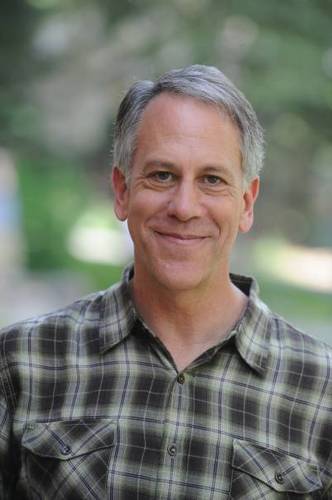
Philip Himberg, Artistic Director, Sundance Institute Theater Program
Philip Himberg is the producing artistic director of Sundance Institute Theatre Program where he has created and overseen the developmental theatre laboratories since 1997. Under Mr. Himberg’s aegis, this nationally recognized program has successfully developed over 150 new works for the stage, including the Tony Award-winning The Light in the Piazza, Grey Gardens, 33 Variations, Passing Strange, Spring Awakening, and I Am My Own Wife, among many others. For Sundance Summer Theatre, he directed Fiddler on the Roof, Funny Girl, and Dear World. He is also an author; his essay “Family Albums” appears in the Dutton anthology Girls Who Like Boys Who Like Boys. He is a trustee of Theatre Communications Group.
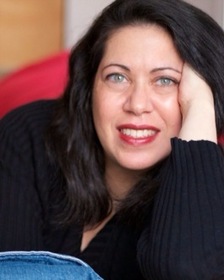
Susan Jonas, Dramaturg
Susan Jonas has held leadership positions as a dramaturg, curator and producer, and has worked as a director, adapter, playwright and educator. She was Producing Director at Classical Theatre of Harlem, Managing Director at Ensemble Studio Theatre, Director of Humanities and Education at Classic Stage Company and Resident Dramaturg, Director of Educational Outreach at The Acting Company. A Theatre Arts Analyst at the New York State Council on the Arts for a decade, she has also taught at Princeton, Brooklyn College, S.U.N.Y.-Stonybrook, and, most recently, New York University.
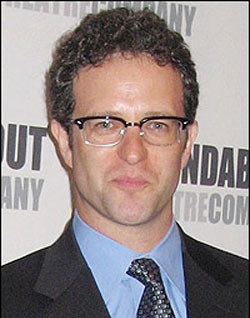
Greg Kotis, Librettist
Greg Kotis is best known for writing the book and co-writing the lyrics of Urinetown, the Musical. He got the idea for Urinetown when, on an ill-budgeted visit to Paris in 1995, he had to limit his trips to the pay toilets that are ubiquitous in that city. Urinetown received ten Tony Award nominations: Best Director, Best Original Score, Best Book of a Musical, Best Musical, Best Actor in a Musical, two nominations for Best Actress in a Musical (Nancy Opel and Jennifer Laura Thompson), Best Featured Actress in a Musical, Best Choreography, and Best Orchestration. Urinetown has been performed around the world and in hundreds of American cities.

Todd Nolan, Artistic Director, Arden Theatre
Todd Nolan is an American theater director and the producing artistic director of the Arden Theatre Company. In 1988 Nolen co-founded the Arden Theatre Company with Amy Murphy and Aaron Posner. He has helped the Arden garner 182 Barrymore Award nominations and 35 awards. He has won the 2006 Barrymore for best director for Opus and Winesberg, Ohio, the Harold Prince Award For Outstanding Direction of a Musical for Sweeney Todd: The Demon Barber of Fleet Street in 2005, and the Harold Prince Award For Outstanding Direction of a Musical for The Baker’s Wife in 2001.

Christian Parker, Literary Manager, Atlantic Theatre
Christian Parker directed The Hiding Place by Jeff Whitty, Arrangements by Ken Weitzman, Birth and After Birth by Tina Howe and Make Me by Leslie Ayvazian, as well as several short plays in 10×20 and 10×25. He is Associate Professor and Chair of the Graduate Theatre Program at Columbia University, where he oversees the concentration in Dramaturgy. He began his career as the Literary Manager at Manhattan Theatre Club, and holds a B.A. from Middlebury College and an M.F.A. from Columbia.

Marisa Smith, Smith & Kraus Publishers
Marisa Smith is the co-owner and Publisher of Smith and Kraus Publishers, the leading publisher in the US of theater books for the trade with over 600 titles in print. She is an award winning playwright, an associate artist with the Lark Play Development Center and a member of the Dramatists Guild. Her plays include Saving Kitty, winner of Best Play from NH in Portland Stages’ (Maine) Clauder Competition.
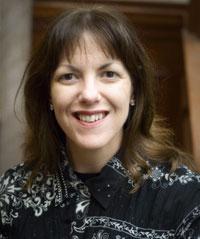
Caridad Svich, Publisher, No Passport Press
Caridad Svich received a 2012 OBIE Award for Lifetime Achievement in the theatre, a 2012 Edgerton Foundation New Play Award and NNPN rolling world premiere for Guapa, and the 2011 American Theatre Critics Association Primus Prize for her play The House of the Spirits, based Isabel Allende’s novel. She has won the National Latino Playwriting Award (sponsored by Arizona Theatre Company) twice, including in the year 2013 for her play Spark. She has been short-listed for the PEN Award in Drama four times, including in the year 2012 for her play Magnificent Waste.
The Faculty
Advisors in the MFA in Creative Writing Program are award-winning professionals who actively write, publish, and produce new work, in addition to teaching. Your advisors will provide detailed editorial feedback, offer support and insight into your writing process, and give you reading suggestions to stoke your creativity.
You will work closely with one advisor each semester. You may choose to work with a different faculty member each term, or you may prefer to work with just two or three over the course of your MFA. In your final semester, you’ll also have the benefit of a “second reader,” a faculty member who will read and provide additional feedback on your thesis as a whole.
At Goddard, advisors don’t try to impose a style on you or dispense the one-size-fits-all type of writing advice you could get from a book. Instead, they strive to help you realize your own unique creative vision.
Genres
The MFA in Creative Writing Program supports students writing in the following genres:
- Fiction
- Poetry
- Creative Nonfiction / Memoir
- Playwriting
- Libretto Writing
- Screenwriting
- Television Writing
- Graphic Novel Scriptwriting
- Cross-Genre / Hybrid
The Low-Residency Model
The low-residency model removes the barriers between living your life and learning. Each semester begins with an eight-day residency in Vermont or Washington. Residencies offer seminars, meetings with your advising groups, workshops, one-on-one meetings with an advisor, and presentations. You will also connect with faculty, practitioners, activists, and artists, and your fellow students.
Following the residency, students return home for 16 weeks of independent work in close collaboration with a faculty advisor.
Locations
Students in the MFA in Creative Writing Program may choose to attend residencies in either:
- Plainfield, Vermont, on Goddard’s historic main campus, located just outside Montpelier, the state capital. It’s a former farm with a manor garden, surrounding forests, and period architecture.
- Port Townsend, Washington, on our Fort Worden campus, a former Victorian-era Army base with beaches, trails, and a vibrant, seaside arts community on the Pacific Coast, north of Seattle.
When you apply, you’ll select one of these two sites for the duration of your studies.
Goddard College programs operating in Washington State are authorized by the Washington Student Achievement Council. For more information, please refer to Accreditation and Approvals.
The Residency Week
Residency weeks offer an array of classes, readings, lectures, screenings, presentations by visiting luminaries, and formal and informal social gatherings. You’ll join a diverse, passionate, and welcoming community of writers of all ages and walks of life. With these other writers, you’ll immerse yourself in conversation, instruction, and discovery that will ignite your writing process.
Upon arrival you’ll receive a schedule of classes and events in all genres. All offerings are open to all Goddard students, regardless of genre.
Choices include:
- Readings
- Master classes
- Keynote addresses on each residency’s theme
- Workshops and small seminars on individual texts, authors, forms, and theories
- Take Ten, a ten-minute play festival produced entirely by students (VT campus only)
- Classes and panels with industry professionals from the writing, theater, and publishing worlds
For a preview of the wisdom and advice you can expect at a residency, check out Alchemy of the Word, a collection of past residency keynotes and commencement addresses by our faculty.
At each residency, you’ll be paired with a faculty advisor with whom you’ll meet throughout the week, both in workshop and individually to craft your study plan. This documented plan consists of your semester’s assignments and reading list — all tailored to your specific interests and intentions for your thesis. It will provide the deadlines and guidelines you need to sustain your writing process and achieve your goal of completing your thesis project.
The residency week offers both freedom (an open schedule of classes, with mini “writing retreats” for each genre) and an intense focus on the craft of writing. The residency week is endlessly varied: challenging, invigorating, and inspiring. Best of all, it will launch you into the semester, ready and eager for the work to come.
Packets
Monthly “packet exchanges” allow you to sustain an ongoing dialogue with your faculty advisor about your work throughout the semester. Every packet contains your work — creative pages, critical essays, and/or other degree requirements. Packets also include a process letter in which you raise any artistic concerns or questions about your work and life as a writer.
You’ll submit four written packets to your advisor each semester, on specific due dates, and your advisor will respond with detailed margin notes, a comprehensive response letter, and an engaging dialogue about how your critical explorations can assist you in bringing your creative work closer to your vision. In addition, you’ll engage in a “virtual packet” midway through the semester, consisting of a one-hour virtual meeting or phone call with your advisor.
Core Curriculum
The core focus of your MFA studies is your creative work. The intellectual rigor you gain through reading and critical analysis will help you develop your craft and voice. You’ll have many opportunities to share your work in readings and workshops, and you’ll deepen what you’ve learned by applying it in your Teaching Practicum.
Creative Work
Your thesis project consists of a complete book, play, script, or libretto. To help you progress toward that goal, you’ll be expected to engage actively in creative writing throughout each semester. Our students are encouraged to experiment with different genres and methods at each residency and during their first semester, and by their second semester, select a particular genre for their final thesis and concentration.
By the end of your final semester, you are expected to produce a unified creative thesis of professional quality, conforming to standard industry length. You will share an excerpt from this work at a public reading during your commencement residency.
Critical Writing
Close reading is the foundation of the critical work you’ll do at Goddard. Close reading means avidly exploring the construction of the text and moving beyond general impressions to note specific authorial choices and to consider their implications.
Each semester you will work with your advisor to create a reading list that reflects the themes, technical/craft issues, and literary traditions you choose to explore in depth. Your selections will be informed by your own personal experiences, educational background, and reading habits, with attention to such factors as gender, genre, and multiculturalism.
In response to your reading, over the course of your MFA you’ll complete 45-60 annotations, two five-page critical papers, and one twenty-page critical paper.
Teaching Practicum
As a terminal degree, the MFA in Creative Writing is a credential for faculty positions in higher education. To offer you the skills necessary to confidently enter the classroom as a teacher of creative writing, you are also required to complete a “teaching practicum,” as described in the next section.
Teaching Practicum
Unique among MFA programs, Goddard has created a model that gives you:
- the freedom to shape the creative writing course that best serves your goals
- your choice of location and student populations
- your choice of craft topics
- an opportunity to expand your resume
- a way to give back to your community
With a minimum of just three students, our students have offered creative writing courses at colleges, grade schools, retirement communities, libraries, juvenile detention centers – even coffee shops!
Publishing Opportunities
You can be involved in all aspects of publishing, from editing to layout, with these opportunities:
- The Pitkin Review: the literary journal written and edited by Goddard College MFA in Creative Writing students
- Clockhouse: the national, Pushcart-mentioned literary journal, edited and published by Goddard College MFA in Creative Writing alumni
- The Writer in the World: the Goddard College MFA in Creative Writing blog for students and alumni
Visiting Writers & Professionals
At residencies, you’ll meet a diverse range of visiting writers and professionals from the worlds of book publishing, theater, and film and television production.
- Our Visiting Writers Series is one of the most anticipated aspects of each residency. Recent guest writers include Chris Abani, Lynda Barry, Nilo Cruz, Meghan Daum, Mary Gaitskill, Pablo Medina, Dinaw Mengestu, Ruth Ozeki, and Dani Shapiro.
- Our Visiting Professionals Series will introduce you to professionals from the publishing and production industries. Recent guests include editors and agents from Penguin/Tarcher, Hawthorne Books, Janklow & Nesbit, Feminist Press, Simon & Schuster, and Copper Canyon Press.
- Our Alumni Readers Series celebrates the professional achievements of our alumni. Recent alumni readers include Mark Doty, Justin Hall, Cara Hoffman, Simone John, Matthew Quick, and Selah Saterstrom.
- Our Playwrights’ Enrichment Series is unique among MFA writing programs. Once a year, on our Vermont campus, we welcome a visiting luminary from theatre or film. Recent guests include playwrights, librettists, and dramaturgs, as well as literary managers and directors from theatrical powerhouses, such as The Public Theater, HowlRound, Lark Theater, Dramatists Guild, Eugene O’Neill Theater, and the Sundance Institute.
Social Justice Book Club
We are a community of creative writers who are also serious readers—readers who want to be engaged, entertained, and enlightened. We come from a rich array of backgrounds and experiences.
It is this diversity that makes the residency a special place where we can explore books about race, gender, immigration, sexuality, or other topics related to social justice. The resulting conversations allow us to develop our identities—that is, who we are and what we want to say as writers in the world.
Some of the books the SJBC has chosen recently are: Between the World and Me by Ta-Nahisi Coates, Good Kings, Bad Kings by Susan Nussbaum, All the Names by Dinaw Mengestu, Fun Home: A Tragicomedy by Alison Bechdel, and Night Sky with Exit Wounds by Ocean Vuong.
Scholarships and Funding
Goddard/PEN North American Scholarship
The Pearl Foundation Scholarship
The Spirit of Goddard Scholarship
Learn more about all the scholarships we have available for students.
